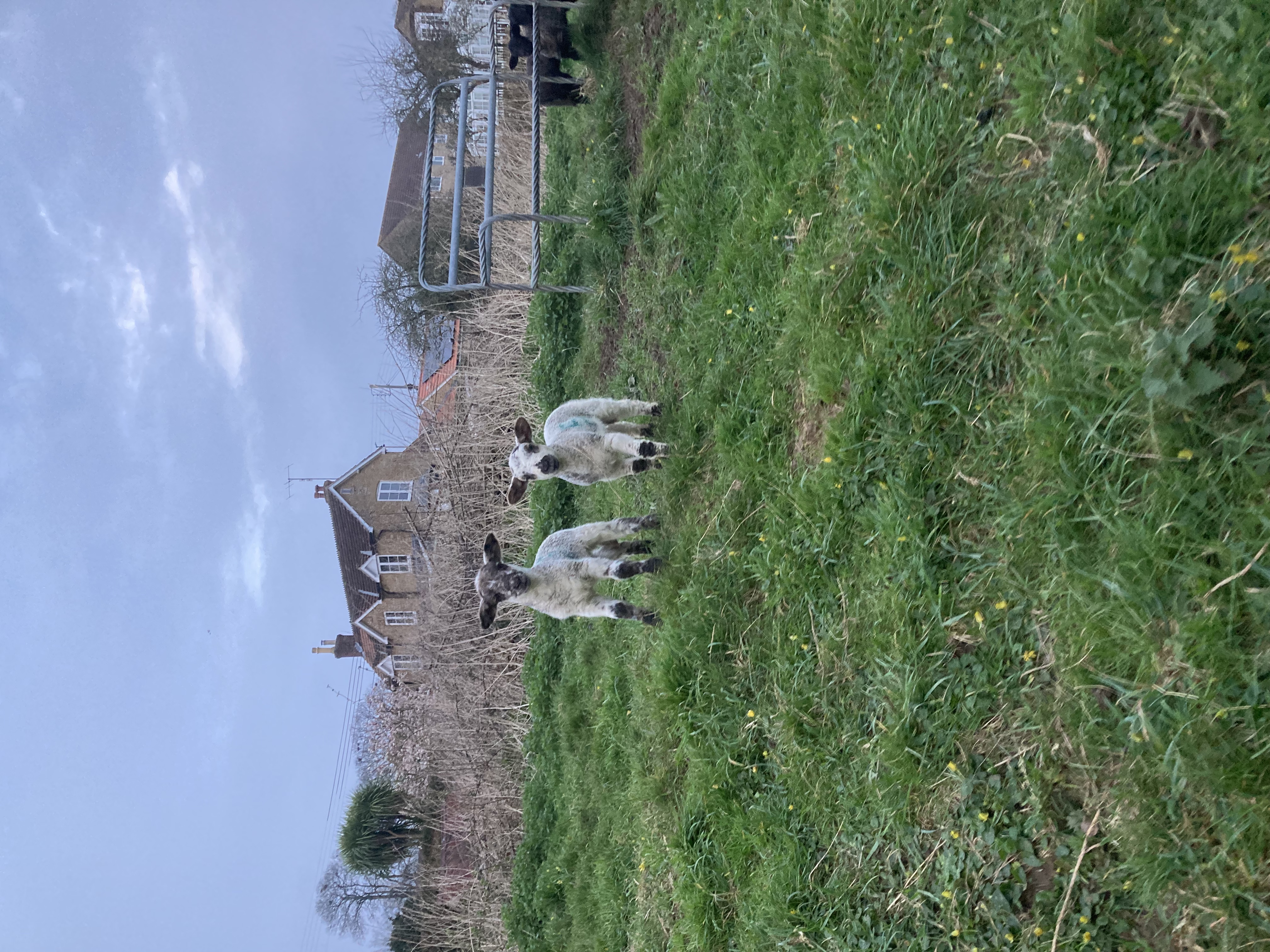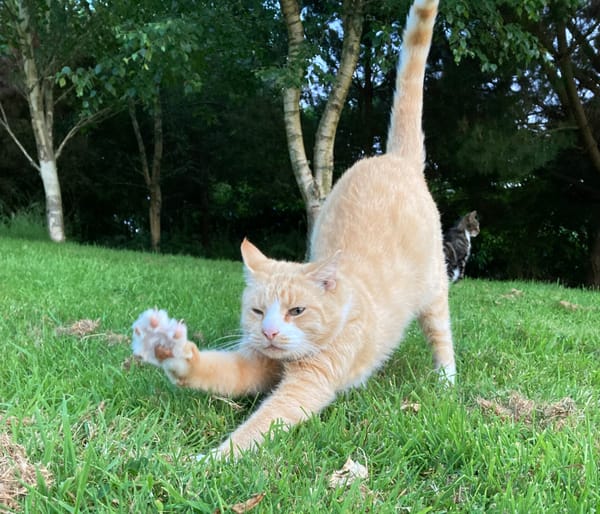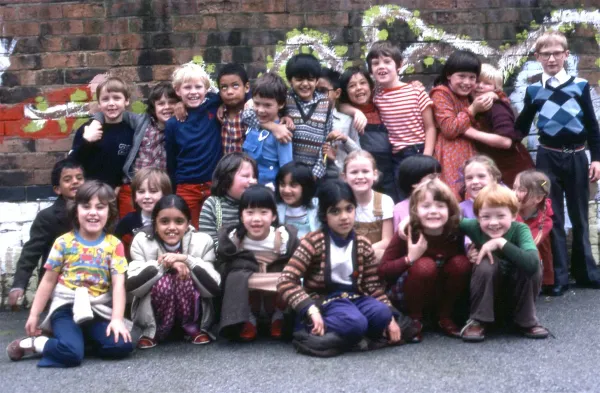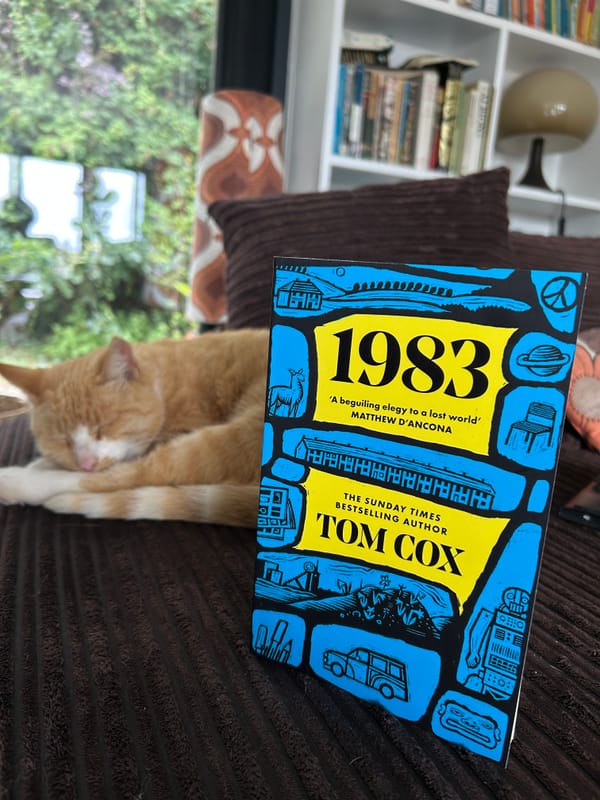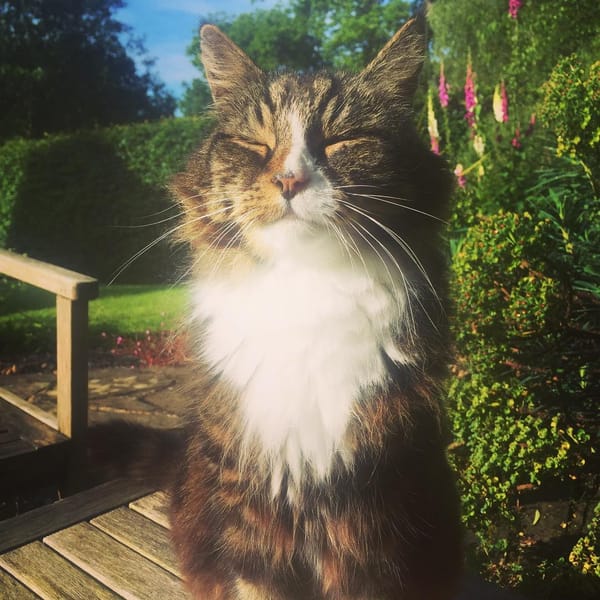A Spring Notebook
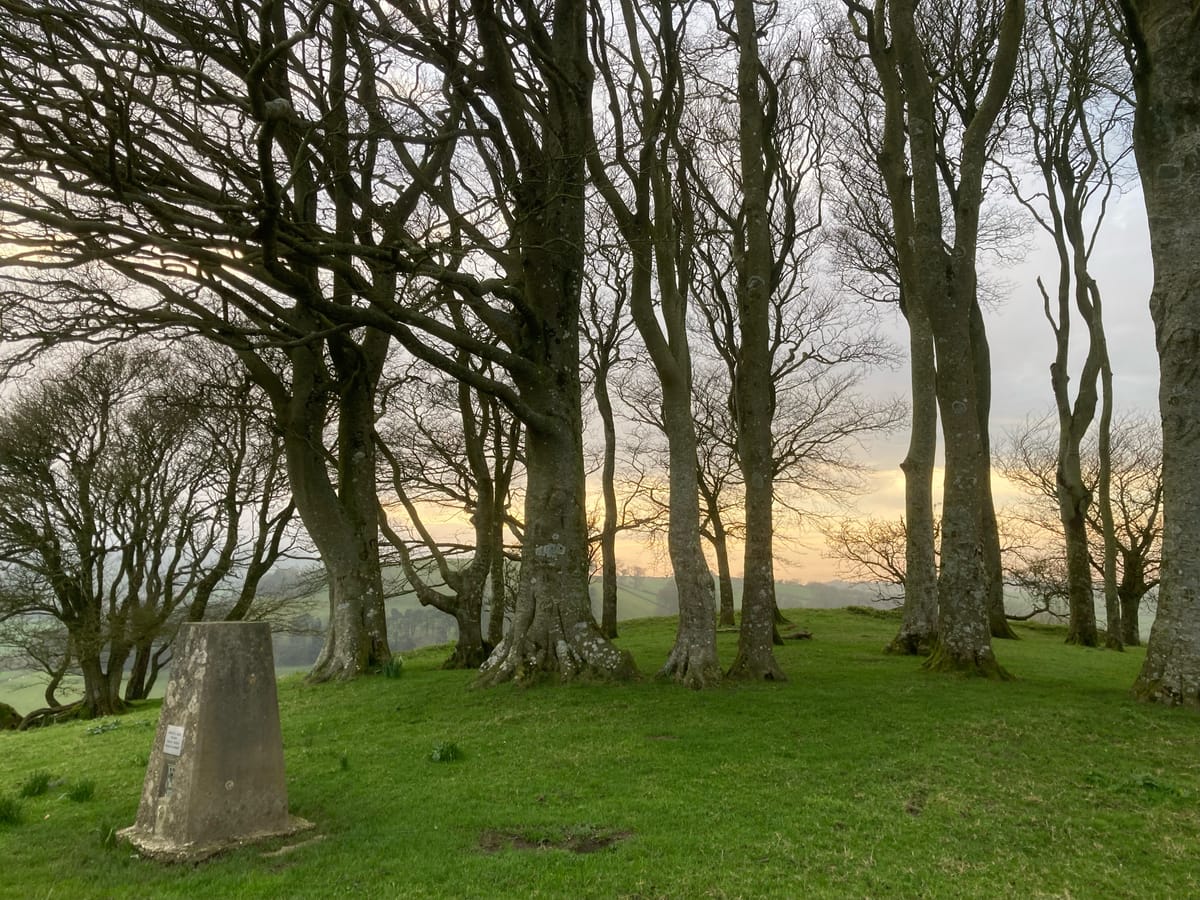
The full written version of this post is for paid subscribers only but the first half of these notes are free to read. It’s one of those pieces that does connect up a bit and you will get a bit more out of if you read all the way to the end but is also easy to dip in and out of, and can be read just as individual entries. Also in case you didn’t know, I’m offering two free signed books for everyone who takes out a full annual subscription at present (the offer is open worldwide).
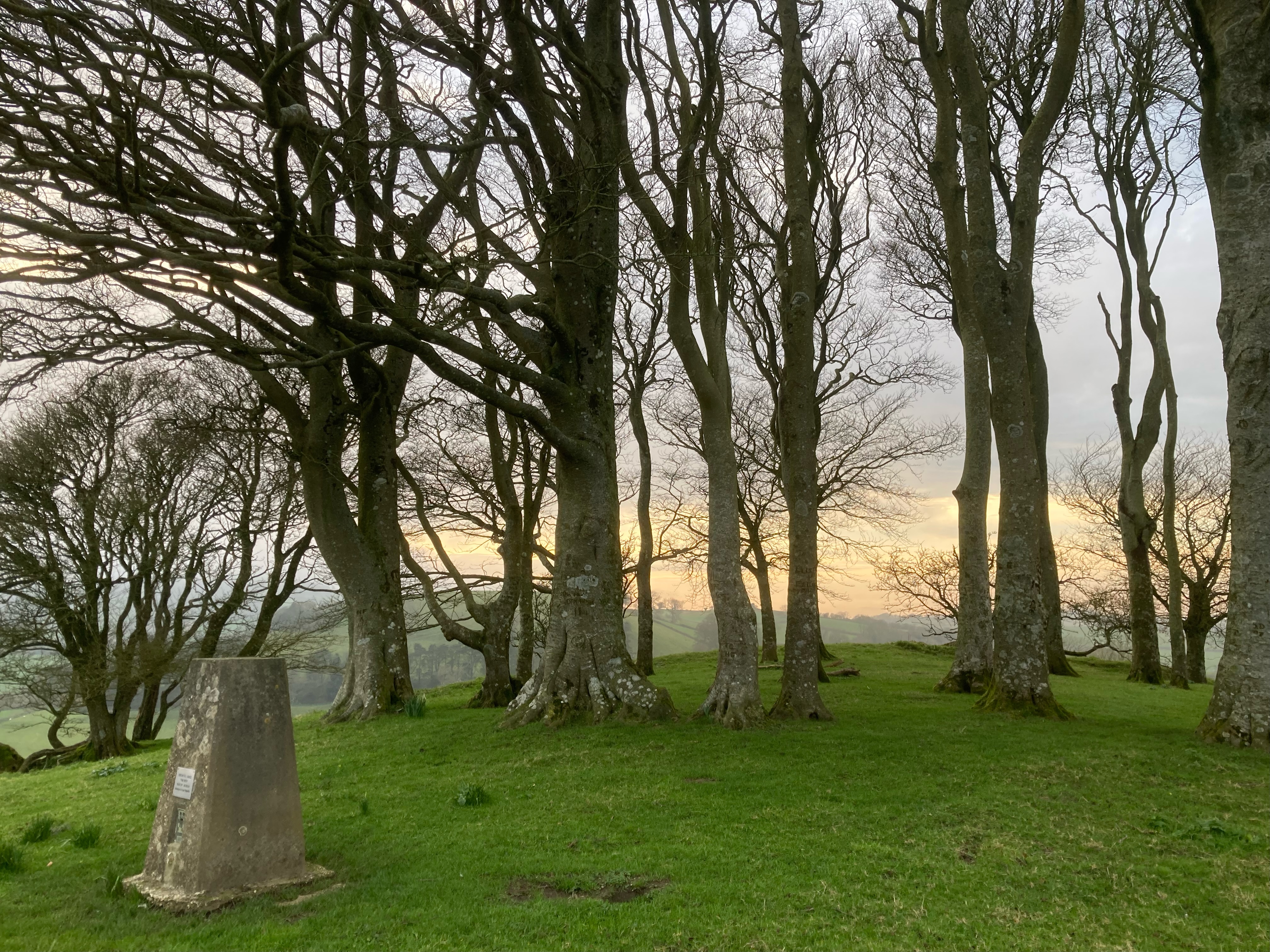
An audio version of this read by me:
If I was to be asked what my big hope is for the remainder of March 2024, I’d probably say it’s that I’ve already seen my full quota of my own blood for the month, but with six days to go who can say for sure? There was the doctor’s surgery today and the other more viscerally unpleasant experience of a couple of weeks ago which I will refrain from detailing in a family newsletter intended to be read prior to the watershed. Then yesterday I climbed a gate, slipped, and my knee crunched down heavily on some sharp stones. I initially decided I’d ignore the large gash it created but then, taking a closer look and remembering all the benefits I regularly enjoy by having legs, I went to the nearest supermarket, Shepton Mallet Tesco, to buy some first aid bits. It was busier than any shop I’d seen since prior to Christmas and the two inches people were managing to stay away from each other felt like the two inches separating a sketchily maintained idea of society from a 900-fist brawl. A strip of my trousers was hanging off, with blood from my knee streaming out of the hole, and I thought I could see a bit of white bone, or something else similarly, unfamiliarly white, sticking out. But in all honesty my knee wasn't painful at all compared to the experience of negotiating Shepton Mallet Tesco at midday on a weekend. Later, after I’d walked through six miles of deepest, richest North Dorset mud, I went to a pub to make some of these notes and people at the pub stared at the bloody red ripped part of my eight year-old jeans and pulled those faces people pull when they’re trying to not make a face at something that disgusts them but can’t help themselves. I think, though, it was mostly about context. The pub was extremely clean and full of even cleaner-looking people, people who looked like they’d walked directly out of a glossy catalogue which sold entire families - mostly just two generations but sometimes three, if you wanted the deluxe package with extra childcare - in expensive clothes for staggering sums of money. Earlier I’d been to a record fair where people were nowhere near as clean or blatantly well-off and everyone greeted my knee more stoically. The landlady of the pub told me the pub had a beer and gin festival coming up soon and that Brian was going to shave his beard off for charity. “Great!” I replied, thinking “Good on you, Brian” but also “Who the fuck is Brian?” One of the unnervingly clean children belonging to the unnervingly clean adults escaped towards the small river near the pub. “Absolutely not, Digby,” said his mother. “We are not people who go into rivers.”
Later I was browsing in a shop and the guy who ran the shop asked me if I could tell him precisely where I lived and, being a bit hesitant about precision at this foundational stage in our relationship, I told him that I lived in a village about 20 minutes’ drive from Exeter. “‘I’ve been to Exeter a couple of times,” the man said, with what I thought I detected as the twinkle of the born narrator in his eye. “The first time, I went to a cafe, I forget which one now, and I ordered a coffee and the coffee was ever so big, quite a lot bigger than I expected. Then the second time I went I got the train but I’ll tell you what: on the way back my train was delayed by almost half an hour.” The man added nothing further about his experiences and it became apparent that I had now heard his Exeter stories in full. Some might have said they could have done with a little extra twist or two but it was hard not to admire their stripped-down, to-the-point realism.
Have you seen the SUVs come out, at this time of year? Have you seen the sweet way they crawl blinking to the thresholds of their warrens and, feeling sunlight and birdsong showering them with gentle kisses, venture out boldly onto the tarmac surface of the earth and tailgate you relentlessly all the way to the motorway slip road or the garden centre. You notice they’re a tiny bit bigger again this year. Their parents must have fed them well over winter! As their bodywork becomes more fortified and their brakes more responsive, their drivers put more faith in their own godlike invincibility. The process keeps on advancing, until one day, driving the same ordinary size vehicle you’ve been driving for years, you notice a semi-rectangular country glued to your rear bumper. At first you mistake it for Egypt but on closer examination it turns out to be the new improved Land Rover Discovery. The man driving it might kill you but that’s ok: he figures he’ll be fine, due to advancements in crash technology and, now we’re all individuals, in the isolationist culture cars have been campaigning for, looking out for ourselves and cutting anyone who kills our vibe out of our lives, is that fineness not what truly matters? You pull over into the nearest layby and let him pass and his fury transitions to a Peugeot hatchback manufactured in 1998. “Get out of my way, pathetic little man!” he shouts at its driver, who is in fact called Sue and considerably over five feet ten in the flat pumps she is wearing today.
But what is troubling me more right now is the cat I saw on its side in the slow lane of the dual carriageway on Thursday. What on earth makes a cat wander out onto a four lane road roaring with traffic at rush hour anyway? I expect it will be a while before I stop seeing the poor thing’s pupils glinting ahead of me in the headlights, before I stop wondering if they still were able to see anything at that point, or what heartbroken child might be missing it, or whether (even more painfully) it was never loved at all, or whether (even though it would have been dangerous, in traffic like that, and no doubt futile) I should have left at the next exit, six miles away, turned around, left at another exit seven miles from there, driven another mile, stopped on the hard shoulder and moved the cat out of the road. What can you do, except try your best to drive carefully, and hug your own pets even more frequently than you already do? What I want to know is what happened to that future vision I had, as an already sensitive 20something, of my reinforced future self, the one who’d built up an exoskeleton to protect himself from these sights, the one immune to the huge amount of roadkill that spring in the UK countryside brings? When precisely was he replaced with this even more sensitive human lump of blancmange that becomes more in danger of entirely liquifying with every dead badger and pheasant and hare and fox that he sees? I suspect there is nothing to be done, except to keep writing.
It’s an unfortunate byproduct of the grand conspiracy that has brought us to do much of our communicating in an on-screen universe where we see more faces in a day than we were evolutionarily designed to in a lifetime that some of us who have experienced the vicious hatred of social media trolls still sometimes hear the voices of those trolls in our heads. I confess I heard some when I was writing that paragraph you just read. Maybe not the guy who appeared to devote his every living digital moment to his fury about my enthusiasm for woodland, but perhaps one of the people who used to send me photos of cats that had been hit by cars or say they were going to have a party when my own cat died. “Pathetic soppy twat,” the voice said to me. But I understand that voice far better than I ever did back when it was a real and regular feature of my day. Your perspective shifts dramatically once you learn to identify the moments when someone who is attacking who you are, or what you create, out of nowhere is in fact not talking about you at all but finding a way to twist a disappointment or anger in their own life outwards. As someone who writes, it’s particularly useful: you anticipate the negative reactions to your work, but you become more accepting of them. “This person dislikes what I do and that’s fine: they’re not my audience.” “This person, on the other hand, is just a ball of shit and rage searching for a place to vomit.” Meanwhile you have the balancing side of the scales: the lovely people who properly get it, and your own ever solidifying awareness that the quest to be universally enjoyed leads nowhere spiritually or artistically fulfilling. What the Troll always seems to be trying to say is that you, like it, should resign yourself to a cold hateful blandness that in fact is not without similarities to the blandness that wants to be loved by all and skirts the exposure of sensitive parts of itself because of that. “I am better than you because I inhabit the Dark Side and feel nothing,” says the Troll. But that’s untrue. It feels its own poison consuming it every day. It’s terrified of sensitivity. It sits in the basement where it lives, below its parents’ front room, and hugs itself to sleep at night, shivering in fear at sensitivity. It’s terrified of the way, when it’s expressed, especially in ways inextricably entwined with love, sensitivity connects people across continents. Of course the troll wants you to fail. The troll is terrified of the fact that sensitivity, and perception of it, is one of the gifts you have available to you as a writer. Like many, I have been shown the numerous ways that dodging that sensitivity while writing seems like a safer option. But I am who I am, it looks like I’m staying that way forever, and I stopped taking an interest in safe options a long time ago.
At this time of year I will often drive to a place and while I do, as many times as not I will notice a flying insect, knocking itself senseless against my car’s windows, again and again, never once taking a moment to pause and learn from the mistakes that have hurt it. Not dying in a traffic accident will remain my priority on such occasions but competing with that will be my dogged dedication to releasing the insect back into the great outdoors. When I finally succeed, however, a melancholic mood will set in. What if the insect is scared and misses home? What if, in trying to find a place for itself, both spiritually and physically, in this unfamiliar region, it mistakes another insect for its uncle, then, in a moment of excruciating awkwardness for the two of them and any insect bystanders who happen to be around at the time, realises this other insect is just an insect who has similar facial features to its uncle but an entirely unfamilar voice and a vastly more unkind personality? A lot of people might argue that I probably shouldn’t spend so much time dwelling on these things. I have after all reached the point in life when some people might be planning their wedding. But like so many women of my class I wish not to marry until I’ve experienced Europe.
I flick through old walking guides and often ask myself “Which walk in here is new to me but doesn’t involve spending too much time in the car to get to it?” but sometimes it’s nice to redo a walk you did four or five years ago and see what’s changed, because something always has. I am fascinated by the different angles from which we see landscape as its newcomers and oldcomers and inbetweencomers, the way a valley you’ve not seen for a few springs will sometimes say, “Yes you’re quite right I do believe we did meet before but I was in a weird place back then. My shirts are better now, I no longer hang around with Paul and I’m ready to talk.” Something a bit like that happened to me last week on a west Dorset walk that I’d last done in 2021. Whole different planet. Fresh coat of paint on the walls and ceiling. New voice (kind of “1950s newsreader with a dark past”). New smell (wild garlic, slurry, rain, goat). There was this mist, which wasn’t quite mist, but wasn’t quite fog, hanging around the southern edge, but a bit of sunlight too, so when you were in the mist that was almost fog it seemed like someone was shining a spotlight on a tent wall from outside the tent and you were in the tent. Crooked weatherfucked trees played sentry to the screaming skies the fog-mist left behind. There was a hill I liked that I kept seeing in the distance, a couple of dozens trees stuck to the top of it like the last resilient hairs of an old man who will not submit to official baldness. I was happy when I realised the path was finally taking me up the hill. I remembered donkeys on the other side. I peeked over. Donkey-free zone today. Were they ok? I hoped so. But where were the other walkers? I’d not seen any today or on my three previous walks. Yet towns had never felt busier. Remember 2020, when all those people who didn’t normally give one flying bollock about walking or nature decided they liked walking and nature and left all their crap all over the countryside? Clearly they’d got over it now, assisted by the legalised resumption of their consumerist frenzy. In lieu of real humans, a couple of characters stepped from the spooky trees. told me they used to hang out here a lot and they’d like to be in my latest novel. I reached for my notebook. Shit. Back in the car. Phone? Dead. The age-old problem for yours truly: the attempt to bottle and memorise the stories the land and its ghosts tell me and get them back to the nearest keyboard fully intact: the kind of thing some people who didn’t do what I do might say was fucking ridiculous but that’s because they’re not me and they don’t do what I do. “Now listen,” said the couple under the spooky trees, near the triangulation pillar. “And don’t forget a word of this.” I told them I’d try. “It’s quite upsetting, though, and it might hurt to write down,” they added. I told them that was ok and I was becoming increasingly aware it was part of the job.
